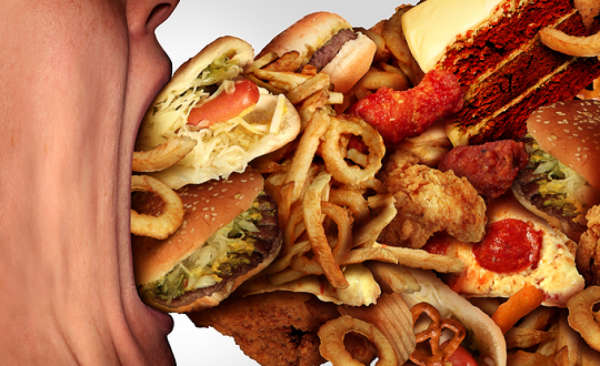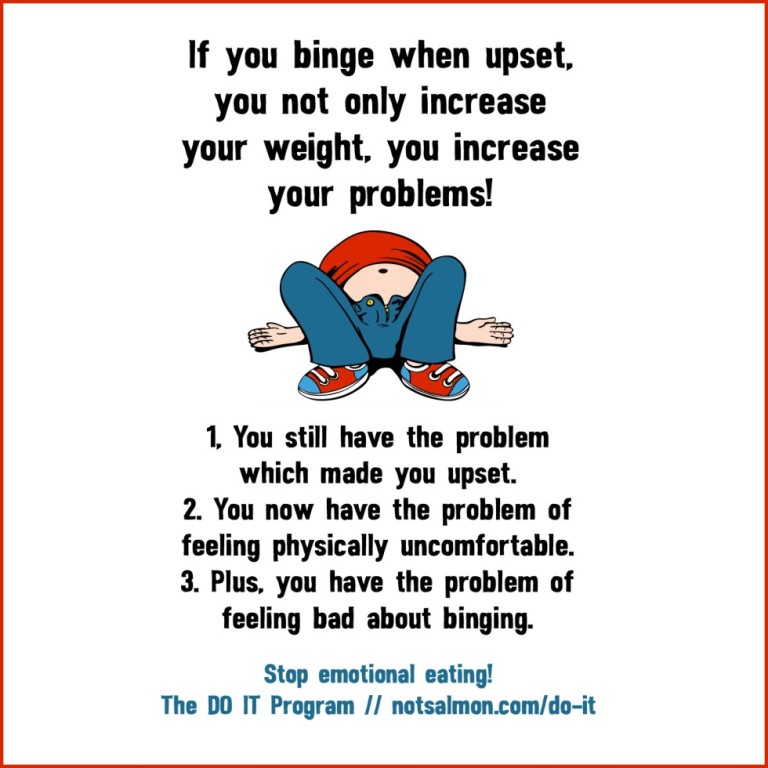Two of most common concerns of overeating are 1) Weight gain and Obesity (which can lead to self-esteem issues), and 2) Health issues. In this article, we will explore 1) Binge Eating, and 3 reasons of overeating.
Binge Eating
Binge eating is a common form of overeating. It can be defined as a large amount of food consumed in a short space of time. Binge eating can happen on a single occasion (e.g during a celebratory event like Christmas and New Years when a variety of festival foods is being served) or, it can become a regular way of eating. Binge eating on a single occasion is pretty common and understandable (so don’t beat yourself too much about it), but however when it becomes a regular way of eating, it can pose several health issues like weight gain, obesity, heart disease, etc. Binge eating can also be a symptom of Binge Eating Disorder, and Bulimia Nervosa (binge eating followed by purging).

3 Reasons Of Overeating
1) Biological
If you are restricting your diet, skipping meals due to a busy schedule, pushing back your meal times, or anything that restrain your diet, you will risk overeating to ‘compensate‘. When you’re famished, you will have a tendency to scout down food as this period of hunger is recognised by the body as going through a ‘famine’.
‘The body wants to survive first and foremost – so anytime you under eat – for whatever reason – the body takes that very seriously, releasing hundreds of hormones and enzymes into the blood system to have you feast: not just eat, but eat a lot.’ -inner nutritionist
2) Psychological
The relationship you have with food. This occurs when you put yourself through a mental restriction. Do you have food list as ‘good food’ and ‘bad food’. The tendency is that the more you mentally fight the food, the more the brain wants that food.
‘To have a healthy body, it is necessary for us to take action of a physical level with diet and exercise, but to have a healthy relationship with food, it is necessary for us to understand ourselves on a deeper emotional level or to uncover why we eat the way we eat.’ -psychology today
3) Emotional
All of us are emotionally connected to food as we are physically dependent on food for our survival and well-being. Emotional eating becomes an issue when one is emotionally dependent on the food and eat when we aren’t physically hungry. Food can be a default and coping mechanism to life’s challenges for e.g stress, sadness, boredom. Food then becomes comfort, and temporary relieve to life’s challenges.

Recommendation
Eat slowly, mindfully, have small portions of food spread evenly spread out over the day, consider adding low Glycemic Index (GI) foods to keep you filled, and drink more water. If you’ve identified that you have a tendency to overeat, I highly recommend you to speak up and talk to a friend, nutritionist, or fitness mentor. There is nothing to be embarrassed about. They can help to keep you in check and accountable if you already have a plan to tackle overeating. Also, consider keeping a diary of your daily food intake and write down every item you’ve consumed during the day so that the next time when you consider eating something excessive, think if you’d want the food to be ‘recorded’ down in your diary.

Conclusion
I wrote this with the people I love in mind who are combating overeating issues. And also you, JustRunLah readers, who may be facing similar issues. I’d like to raise awareness of this not so uncommon issue of overeating. You are definitely not alone. Please arrest this issue timely, help yourself, seek help and I wish you the very best in successfully combating this issue to journey on a happy and fulfilled life.


